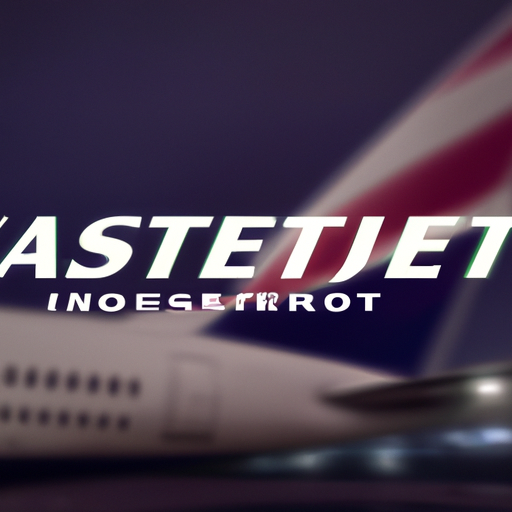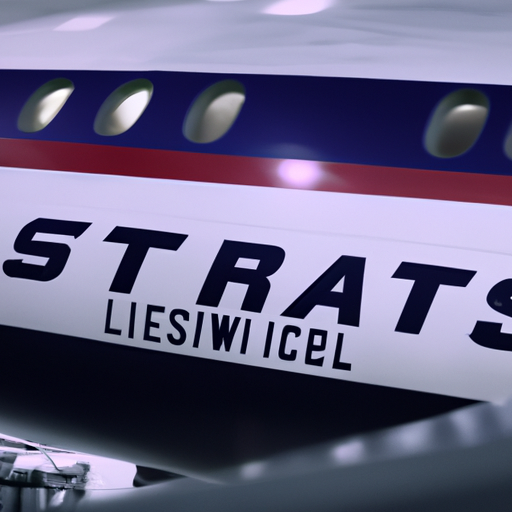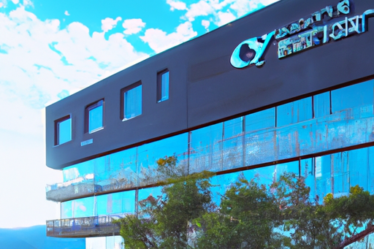
Overview of the Lawsuit: New England Patriots vs. Eastern Airlines
The New England Patriots, one of the most successful and beloved football teams in the United States, have recently filed a lawsuit against Eastern Airlines. This unexpected legal battle has caught the attention of sports fans and legal experts alike, as it raises important questions about trademark infringement and the protection of intellectual property.
At the heart of the lawsuit is the Patriots’ claim that Eastern Airlines has been using their iconic logo without permission. The Patriots argue that the airline’s logo, which features a flying eagle strikingly similar to their own, is causing confusion among consumers. They believe that Eastern Airlines is capitalizing on the Patriots’ brand recognition and reputation to promote their own services.
To understand the Patriots’ position, it is important to delve into the history of their logo. The team’s logo, a silver flying minuteman with a red, white, and blue color scheme, has become synonymous with the Patriots’ success on and off the field. It is instantly recognizable to fans and has been proudly displayed on merchandise, apparel, and even the team’s stadium.
The Patriots argue that Eastern Airlines’ use of a similar logo is not only a violation of their intellectual property rights but also a threat to their brand integrity. They fear that consumers may mistakenly associate the airline’s services with the Patriots, leading to a dilution of their brand and potential loss of revenue. This concern is not unfounded, as studies have shown that consumers are more likely to trust and purchase products associated with well-established brands.
Eastern Airlines, on the other hand, maintains that their logo is distinct and does not infringe upon the Patriots’ trademark. They argue that their logo represents the spirit of freedom and travel, while the Patriots’ logo is specific to a football team. They believe that consumers are capable of distinguishing between the two and that there is no likelihood of confusion.
As the lawsuit unfolds, legal experts are closely watching the case for its potential impact on trademark law. Trademark infringement cases often hinge on the concept of consumer confusion, and this lawsuit will likely set a precedent for future disputes involving similar issues. It will be interesting to see how the court weighs the Patriots’ claim of brand dilution against Eastern Airlines’ argument of distinctiveness.
In the meantime, the Patriots are seeking an injunction to prevent Eastern Airlines from using their logo and are also seeking damages for the alleged trademark infringement. They are determined to protect their brand and ensure that their logo remains a symbol of their team’s success and legacy.
As fans eagerly await the resolution of this legal battle, it serves as a reminder of the importance of intellectual property rights in the world of sports and beyond. The outcome of this lawsuit will not only impact the Patriots and Eastern Airlines but also set a precedent for how trademarks are protected and enforced in the future.
Analysis of the Legal Arguments Presented by the New England Patriots

The New England Patriots have recently filed a lawsuit against Eastern Airlines, claiming breach of contract and seeking damages. In this article, we will analyze the legal arguments presented by the Patriots and provide an overview of the case.
First and foremost, the Patriots argue that Eastern Airlines failed to fulfill its contractual obligations. According to the team, the airline was responsible for transporting the players and staff to an important away game. However, Eastern Airlines allegedly failed to provide the agreed-upon services, resulting in significant disruptions and financial losses for the Patriots.
The team further contends that Eastern Airlines’ actions constituted a breach of contract. They argue that the airline had a duty to transport the team safely and on time, but failed to do so. As a result, the Patriots were unable to arrive at the game in a timely manner, which affected their performance and ultimately led to a loss.
Moreover, the Patriots claim that they suffered financial losses as a direct result of Eastern Airlines’ breach of contract. They argue that the team had to incur additional expenses to secure alternative transportation at the last minute. These expenses included chartering a private plane and arranging accommodations for the players and staff. The Patriots assert that Eastern Airlines should be held responsible for these costs.
In response to the Patriots’ claims, Eastern Airlines has raised several defenses. Firstly, they argue that unforeseen circumstances beyond their control caused the disruptions. The airline claims that adverse weather conditions and air traffic congestion were the primary reasons for the delays and cancellations. They contend that these circumstances were beyond their control and therefore should not be held liable for any resulting damages.
Additionally, Eastern Airlines asserts that the Patriots themselves contributed to the delays and disruptions. They argue that the team failed to provide accurate and up-to-date travel information, which hindered the airline’s ability to make necessary arrangements. Eastern Airlines claims that they made every effort to accommodate the team’s needs but were unable to do so due to the lack of accurate information.
Furthermore, the airline argues that any financial losses suffered by the Patriots were not a direct result of their actions. They contend that the team’s decision to charter a private plane and arrange alternative accommodations was unnecessary and excessive. Eastern Airlines asserts that they would have been able to provide suitable alternatives at a lower cost if given the opportunity.
In conclusion, the New England Patriots’ lawsuit against Eastern Airlines raises important legal arguments regarding breach of contract and financial losses. While the Patriots argue that the airline failed to fulfill its obligations and caused significant disruptions, Eastern Airlines maintains that unforeseen circumstances and the team’s own actions contributed to the situation. As the case unfolds, it will be interesting to see how the court evaluates these arguments and determines the extent of liability, if any, on the part of Eastern Airlines.
Potential Implications and Outcomes of the Lawsuit: New England Patriots vs. Eastern Airlines
The recent lawsuit filed by the New England Patriots against Eastern Airlines has raised many questions about the potential implications and outcomes of this legal battle. As both parties prepare to present their arguments in court, it is important to consider the possible consequences that this lawsuit could have on the future of both the Patriots and Eastern Airlines.
One potential outcome of this lawsuit is the financial impact it could have on both parties involved. If the Patriots are successful in their claim, they could be awarded a significant amount of money in damages. This could have a detrimental effect on Eastern Airlines, potentially leading to financial instability and even bankruptcy. On the other hand, if Eastern Airlines is able to successfully defend themselves against the Patriots’ claims, it could result in a significant blow to the Patriots’ reputation and financial standing.
Another potential implication of this lawsuit is the effect it could have on the relationship between the Patriots and their fans. The Patriots have long been a beloved team in New England, with a loyal fan base that spans generations. If the lawsuit results in a negative outcome for the Patriots, it could lead to a loss of trust and support from their fans. This could have long-term consequences for the team, both in terms of attendance at games and merchandise sales.
Additionally, this lawsuit could have broader implications for the sports industry as a whole. If the Patriots are successful in their claim, it could set a precedent for other sports teams to pursue legal action against airlines or other entities that they believe have caused them harm. This could open the floodgates for a wave of lawsuits in the future, potentially changing the way that sports teams and airlines interact.
Furthermore, the outcome of this lawsuit could have implications for the legal system itself. If the Patriots are successful in their claim, it could lead to a reevaluation of the laws surrounding airline liability and the responsibilities of sports teams. On the other hand, if Eastern Airlines is able to successfully defend themselves, it could reinforce the current legal framework and set a precedent for future cases.
In conclusion, the lawsuit between the New England Patriots and Eastern Airlines has the potential to have far-reaching implications and outcomes. From the financial impact on both parties to the effect on the relationship between the Patriots and their fans, this legal battle could have significant consequences. Additionally, the outcome of this lawsuit could have broader implications for the sports industry and the legal system as a whole. As the case unfolds in court, it will be interesting to see how these potential implications and outcomes play out and what the future holds for both the Patriots and Eastern Airlines.


